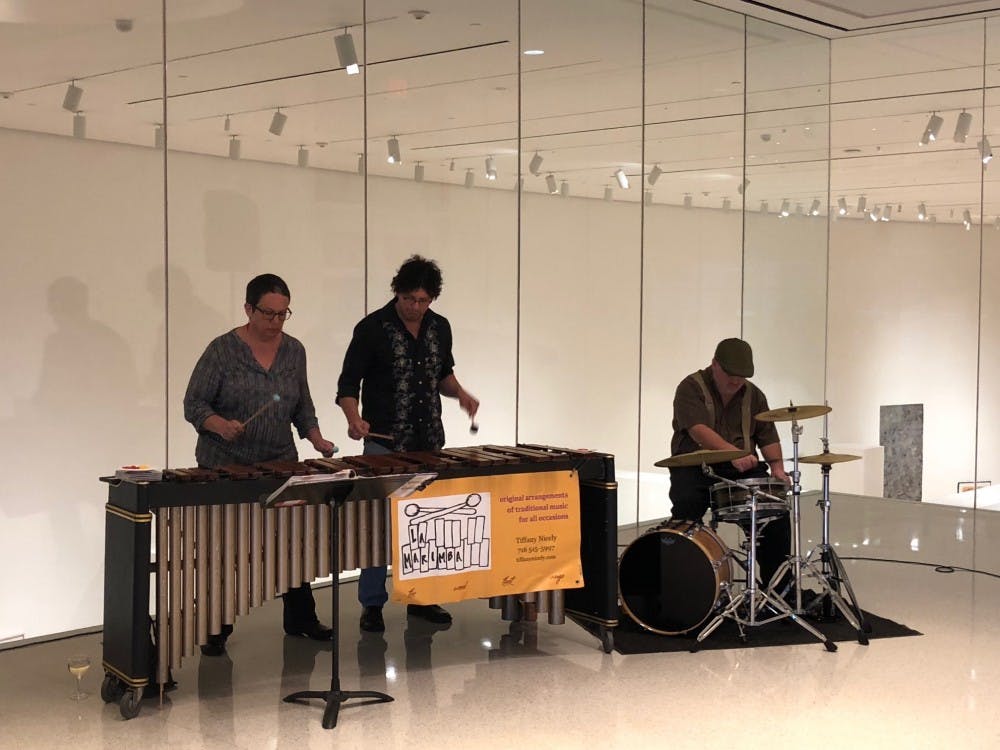The Burchfield Penney Art Center found itself overflowing with three days worth of music and entertainment. The center hosted the third-annual riverrun Global Film Series last week.
The film series focused on Mexican cinema and culture, drawing attention to the current political climate. The event ran from Oct. 10-12, attracting roughly 700 people from the Buffalo area.
The event opened Wednesday evening, showcasing films by Joshua Bonnetta and J.P. Sniadecki, Arturo Ripstein, Alejandra Sánchez, and Camila José Donoso. Wednesday brought in roughly 200 attendees between the three events.
The series was curated by Professor Tanya Shilina-Conte, coordinator of the Global Film Minor at UB. She works alongside efforts at UB’s English department and the Department of Romance Language and Literature. The series also featured keynote speaker Ignacio Sánchez Prado, a professor of Spanish and Latin American studies at Washington University.
The series sought to highlight the immigration crisis, according to Shilina-Conte.
“There are many misconceptions about migrants, the poverty and violence that they are fleeing, and the deaths that await many in the unforgiving Sonoran Desert. We wanted to provide a Mexican, not American, view of these hardships,” Shilina-Conte said. “ Buffalo’s Latin American community [presents] strong evidence at screenings and for the art installations by Mara Odette Guerrero.”
The screenings featured experimental films like “El Mar La Mar”, a classical narrative archetype with “Tiempo De Morir” (Time to Die) and the significance of LGBTQ and female filmmakers with “Smuack” and “Casa Roshell”.
Ripstein’s “Tiempo De Morir” demonstrated the similarities between Mexican and American classical narratives. The 1966 film’s plot drew comparisons to American western films from the same era, aligning the cultures and ethics.
The plot follows a former convict who returns to his hometown, attempting to live a normal life. It draws on the audience’s morals and cultural perception.
Anthony Defeo, a senior film studies major, volunteered to work the series after his involvement with the film studies department.
“It’s a rare opportunity to see films from our neighbor, Mexico, that otherwise might not get over the border. Incidentally, the panelists and speakers discussing that same border shed light on the contemporary issues of immigration in a way you won’t have a chance to witness anywhere else,” Defeo said. “[They’re] bringing their own experiences in Mexico and working with migrants and refugees from around the world, particularly in Buffalo, to the table.”
The film was introduced by SUNY Distinguished Professor, Bruce Jackson, who frequently incorporates international films within his Buffalo Film Seminars.
Thursday introduced a documentary with “Los Herederos” (The Inheritors), a lecture on migration and cinema from Prado, and another example of classical narrative with the film “Dos Monjes” (Two Monks). Thursday’s events brought in a crowd of over 150.
“Los Herederos” takes a look into child labor in Mexico. The screening was dedicated to the children separated from their parents on the U.S.-Mexico border. The film explored the extensive cycle of poverty found within Mexico and an example of the lifestyle many immigrants may be fleeing from.
Throughout the event, the art center offered a variety of Mexican-inspired food at its cafe. It also displayed culturally significant art installations by Mexican artist Guerrero.
Friday’s lineup featured a look into Luis Buñuel, a Mexican filmmaker and the father of cinematic surrealism, documentary, the significance of cultural music and Mexican animation. Friday also featured a variety of short films and had over 350 attendees across all of the events.
The Mexican animation segment drew in large crowds of families. The crowds gathered for the spotlight on “Coco,” one of Disney’s latest animated films. The attraction brought in over 100 guests.
“Coco” follows the story of Miguel, a Mexican boy who discovers the significance of music within his culture. It takes a unique look at the concept of crossing borders. The film won the Academy Award for Best Animated Feature in 2017.
Students from UB, Buffalo State College, Canisius College, and D’Youville College attended the events. Film fans and off-campus classes came together to celebrate Mexican culture.
Christian Schnapp, a sophomore film studies major, attended the screening as one of Shilina-Conte’s students.
“With the films that are screened, one is enlightened beyond all measure, but most importantly, one becomes better informed about the world in a way that not many other mediums or events can allow,” Schnapp said.
“What [Shilina-Conte] offers equips one to better understand the issues that the festival focuses on; to experience films with emotion before thought, to experience poetry with the heart before logic, to hear music with the soul before the ear.”
Samantha Vargas is the assistant arts editor and can be reached at samantha.vargas@ubspectrum.com and on Twitter @SamVargasArts.
Samantha Vargas is an English/ film studies double major with a minor in media study. She spends her free time finding shows around buffalo and hanging out with her cat.






